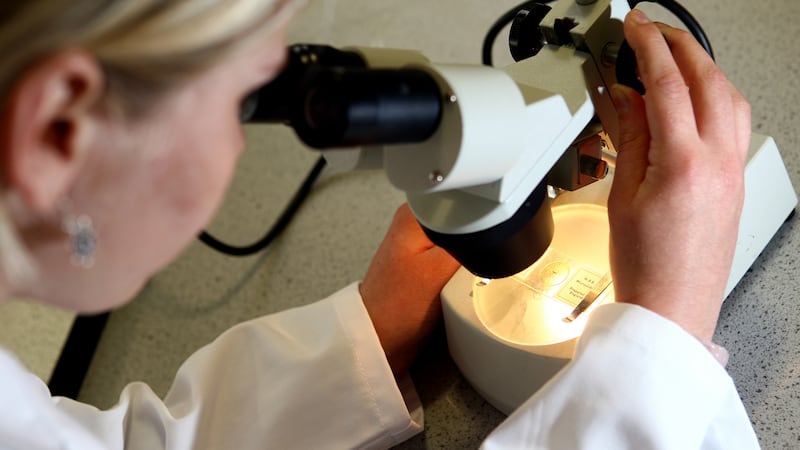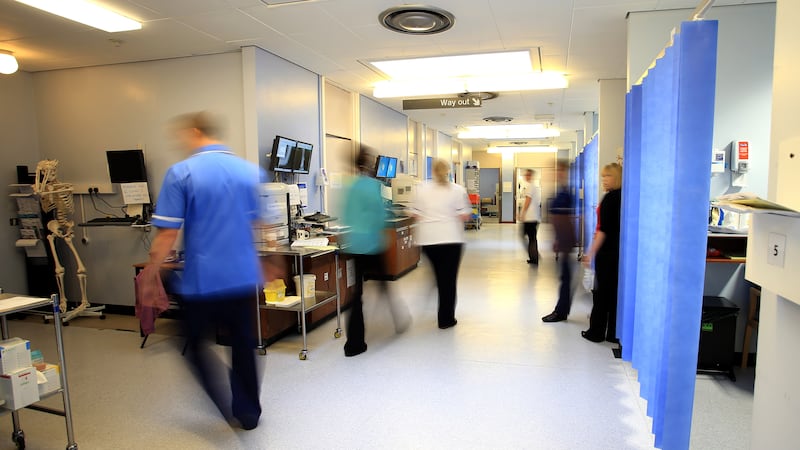From the beginning, way back in 1969, the unionists have objected to everything which the government have tried to introduce which would make Northern Ireland a better place. Everyone knows that the protocol was an economic gift to ‘this wee place’ but the backwoodsmen of unionism thought economic progress would cut the cords with Britain another bit. In a fit of pique they pulled down Stormont, huffed in the corner and contented themselves that Mother Britain would dance to their tune.
The unionist leaders need to reflect a little on Northern Ireland history from 1969. There are always four stages: first, something is proposed; second, the unionists reject it; third Britain works behind backs to change the wording; and lastly, Britain does what it was going to do in the first place. This is happening again with the protocol. After much shouting about how the UK would stand by the union, not desert the unionists and never give in to Europe, it is now obvious that the deal is done and that Britain and Ireland are preparing the ground on two fronts for the protocol to be implemented.
Legislation has been passed by Order in Council allowing for de facto border posts to be built, “irrespective of whether any matter has been brought to the attention of, or discussed and agreed by, the Executive Committee of the Northern Ireland Assembly”. In other words, the government is saying plainly that the border posts are coming whether we like it or not. Also, and almost as important, Leo Varadkar said during the same week: “There is no guarantee that a deal on the Northern Ireland Protocol would lead to the re-establishment of the Stormont Executive.”
This is showdown talk. It is like a script for a movie when one gang decides to take over another whatever the cost. Jamie Bryson and his ‘junior minister’ Jeffrey Donaldson are going to be left with a lot of egg on their face. Britain needs both a deal with Europe and friendly relations with its huge economic trading partner.
Leo Varadkar is only stating the obvious - unionists were never really out of Stormont because of the protocol but because they couldn’t stomach having a Sinn Féin first minister. When a child stamps its feet and stands in a corner, there comes a point when you just have to leave it there to huff all it wants.
TURLOUGH QUINN
Portglenone, Co Antrim
Perhaps turkeys do vote for Christmas
The optics of the recent visit of King Charles to Northern Ireland served to highlight the present sorry state of unionism. On meeting the king, Michelle O’Neill seemed confident and relaxed in exchanging greetings with him. In contrast Jeffrey Donaldson seemed tense and deferential – a loyal subject who seemed over anxious to gain the approval of his sovereign. The hard truth is that the province now has little “selfish or strategic” importance to Britain.
The acid test of the significance of the union to Great Britain lies in the protocol. Northern Ireland was literally left behind as GB departed the EU. A trade sea border was established between GB and NI to facilitate this exit in an ignominious capitulation by the Tories. NI was evidently expendable to the ‘little Englanders’ in order to complete their bigger project -Brexit.
Would France have agreed to impose such a trade border between its mainland and Corsica? Or Italy in relation to Sardinia?
What makes this outcome more treacherous, from a unionist perspective, is that it was largely engineered by their erstwhile allies in the ERG.
Why then do the DUP continue to support Brexit following this brutal betrayal?
It has undermined the political equilibrium of the Good Friday Agreement creating a debilitating instability and severely disrupting the delivery of public services within the province.
It has rendered the UK the worst performing economy of the G7 and second worst, with the exception of Russia, in the G20. In contrast the regional Northern Ireland economy, which has remained part of the single market, has performed better than expected.
Most significantly, it has spawned the unionist bête-noir – the highly contentious and seemingly unworkable protocol – which has left the province marooned in a constitutional limbo.
The evolution of the protocol is skewed towards greater EU convergence for the province. In contrast the delusional, right-wing Tories are keen for a post-Brexit GB to become a low tax, deregulated economy – the fabled ‘Singapore-on-Thames’ – diverging widely from the EU model. The inevitable trade barriers could lead to Northern Ireland and GB gradually drifting apart. The ERG focus remains. as ever, on the potential opportunities of Brexit – not the fortunes of unionism.
Perhaps turkeys do vote for Christmas.
GEORGE WORKMAN
Donabate, Dublin
Justice system is in crisis
I write regarding your article of January 11 carrying the comments of the Chief Inspector of Criminal Justice calling for a review of the bail and remand system in this jurisdiction.
This is an area where The Law Society of Northern Ireland has long called for reform. It is intolerable that nearly four in 10 of the prison population are there without having stood trial or been convicted. But it is not solely about our bail and remand laws – the fact is that victims, witnesses and those on remand are being let down by a criminal justice system that has some of the slowest turnaround of cases in the UK. For example, sexual offence victims in this jurisdiction are waiting on average close to two years to have their cases dealt with.
We need Executive ministers in post urgently to prioritise serious reform of a justice system in crisis.
BRIAN ARCHER
President, Law Society of Northern Ireland
‘Democratic’ responsibility
Surely the diplomatic question the English foreign fecretary and Northern Ireland minister should be asking themselves is: Precisely why were they engaging with a political party leader, who refuses to accept the results of an election?
Recollecting the alacrity with which Robert Kennedy stepped aside from his justice brief – to pick up the phone and ensure that a New York housing issue was resolved – perhaps his grandson Joe might follow his example.
Buttonhole Jeffrey, and
remind him of the responsibility attached to labelling a political party ‘democratic’.
DAVE LITTLE
Derry City







